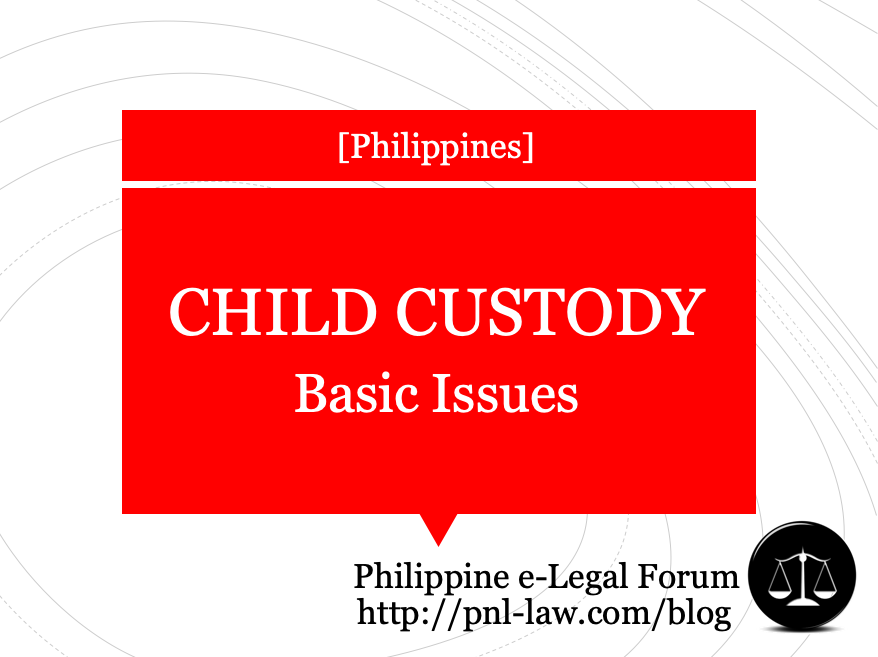At 17 Can a Child Chose Where to Live in Philippines
Custody of children is one of the most intense aspects in family litigation. A custody battle could be an independent case or a mere incident in an annulment/separation case. Some basic matters pertaining to child custody under Philippine laws are discussed below.

In custody disputes, what is the paramount criterion?
The paramount criterion in custody disputes is the welfare and well-being of the child, or the best interest of the child. The court, in arriving at its decision as to whom custody of the minor should be given, must take into account the respective resources and social and moral situations of the contending parents. Nevertheless, this primordial rule can override the rights of one or both parents over their children.
What is the general rule as to custody over children?
The general rule is that a child under seven years of age shall not be separated from his mother, which is based on the basic need of a child for his mother's loving care. Article 213 of the Family Code provides that "[n]o child under seven years of age shall be separated from the mother, unless the court finds compelling reasons to order otherwise." This is more pronounced in case of illegitimate children, as the law expressly provides that illegitimate children shall be under the parental authority of their mother.
Is this rule absolute?
This rule is not absolute. Even a mother may be deprived of the custody of her child who is below seven years of age for "compelling reasons." Instances of unsuitability are neglect, abandonment, unemployment and immorality, habitual drunkenness, drug addiction, maltreatment of the child, insanity, and affliction with a communicable illness. Negligent and careless failure to perform the duties of parenthood is a significant element of abandonment, regardless of actual intention. A strong basis for a finding of the parent's abandonment of his or her child is found in the case where the parent has left the child permanently or indefinitely in the care of others, given it to another, or surrendered it entirely.
I left my child with a relative, even signing a document to such effect. Am I barred from taking back my child?
Parental authority and responsibility are inalienable and may not be transferred or renounced except in cases authorized by law. The right attached to parental authority, being purely personal, the law allows a waiver of parental authority only in cases of adoption, guardianship and surrender to a children's home or an orphan institution. When a parent entrusts the custody of a minor to another, such as a friend or godfather, even in a document, what is given is merely temporary custody and it does not constitute a renunciation of parental authority. Even if a definite renunciation is manifest, the law still disallows the same.
Is the court bound by such preference of a child below 7 years of age?
While such choice is given respect, the court is not bound by that choice. The court may exercise its discretion by disregarding the child's preference should the parent chosen be found to be unfit, in which instance, custody may be given to the other parent, or even to a third person. Decisions on custody of children are always open to adjustment as the circumstances may warrant.
[See also Child Custody of the Father and Mother, Visitation Rights in the Philippines]
- Author
- Recent Posts

Atty. Fred Pamaos is a member of P&L Law (click on photo/name for profile). No legal advice is given in this forum. For other questions, use the "Contact Us" link.

At 17 Can a Child Chose Where to Live in Philippines
Source: https://pnl-law.com/blog/basic-issues-in-child-custody/
0 Response to "At 17 Can a Child Chose Where to Live in Philippines"
Post a Comment